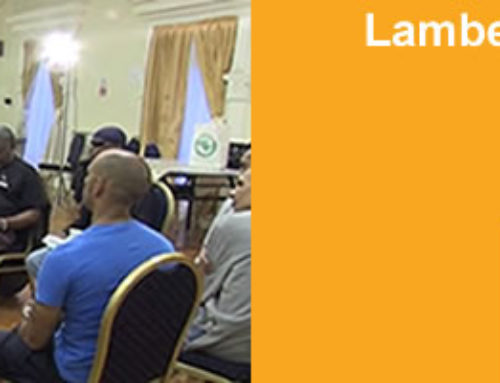Reaping benefits of the brain drain – Ade Sawyerr, Equinox Consulting
As the British government continues its tough talk on the need to control economic migration one wonders when governments of the country of origin of these migrants will start implementing policies and programmes that would attract these seasoned professionals and their children back home to help contribute to the prosperity of economies much in the same way they are doing in Britain.
This diatribe against migrants flies in the face of continued schemes such as the work permit system and the Highly Skilled Migrant Visas that are meant to attract these qualified people away from the developing countries who need their skills most. The fact is that most of these schemes targeted at qualified people most of whom have studied here, and who are not illegal in this country, have been used successfully by this same government in several sectors including health and education.
The Nigerian government has always recognised that Nigerians in the diaspora could make an impact on development and growth of the country, and having floated a highly successful diaspora bond the government continues to examine how it can tap into the skills set of the large number of people who subscribed the financial bond. A strategy for attracting these professionals back home to help in areas of skill shortage and transform the brain drain into a brain gain has always been on the mind of the government who set up a house select committee to consider the issue and came up with a raft of initiatives including a Nigeria National Volunteer Service.
In a recent study for the International Organization for Migration ‘Mapping of Nigeria Health and Education Professionals in the UK’ under an EU funded project of Promoting Better Management of Migration in Nigeria, Equinox Consulting surveyed a representative number of professionals receiving 261 responses in the main survey made up of 181 health, 59 from the educational sector and 21 from other allied professions. In addition three focus groups were organised with a total of 30 participants and views were heard from 6 key informants. Of those who took part in the survey 52% were male, 57% were aged between 40 and 54 years, 40% of respondents had lived in the UK for more than 20 years and London was a preferred choice of residence for 39% of the respondents.
A majority, 70% of the respondents had been born in Nigeria and 62% had dual nationality. There were several of second generation who had been born in the UK then taken to Nigeria after their parents and completed their education in the UK. Though living in the UK, all these respondents exhibit a very strong sense of attachment to Nigeria; participating in various community, affinity and professional Nigerian associations within the UK that are social and development oriented. The study shows that people of Nigerian origin wherever they were born in the world consider Nigeria as their home because they have family there. They continue to think about Nigeria in their daily lives and expect to return one day.
This strong affinity with Nigerian is manifested in several ways: reading about Nigerian almost daily from the news media and the internet, following Nigerian issues on social media, contact with family, friends, contemporaries and professional colleagues on telephone calls and emails about developments in Nigeria.
The connection to Nigeria is even stronger considering that as many as 96% claim that they have returned to Nigeria at least once since they originally came to the UK and a majority 60%, visit at least every 2 years and 89% stay for around four weeks. Whist the main purpose of the visits relate to being with family and friends especially on important family occasions such as funerals and weddings, there are a few who engage in some charity work and claim that they share knowledge with colleagues and several also look for investment opportunities during their stay with some working on charity projects.
The responses reveal two main pull factors for migrating to the UK. One was the desire to improve on educational qualifications, borne out by the fact that though 64% of the respondents said that they had completed secondary education in Nigeria a larger 70% said that they had attained their highest qualification that was needed for their profession in the UK. The other contributing factor for migrating, to seek a better life economically, is the major reason why they remain here. Varied explanations were provided their continued stay after their studies: despite discrimination arising out of racism they thrive because they love their jobs and have excellent job satisfaction, they receive support from their colleagues, they are at the cutting edge of their specialism learning new skills all the time. Other reasons cited were – though they operate under a demanding work environment this actually engenders a favourable work ethic and opportunities to advance their professional careers. Other reasons included, a fairer system of appraisals with good contracts of employment that are enforceable and their compensation is comparatively good, 59% of the health professionals and 22% of education professionals earned over £40,000. Above all these, they have family here and have developed roots.
Would these health professionals who have acquired qualifications, skills and expertise go back home to work? Their responses revealed a complex mix of push factors centred on their professional development and compensation and the lack of infrastructure development in Nigeria seen as a code word for the fact that this was a more developed environment.
The personal circumstance factors detracting from their returning were: 46% saw the quality of the relocation package as the most important followed by comparable salary and benefits, 45%, and opportunities for career advancement and continuing professional development, 18%. Other issues of importance included, health and education provision, 17%; and whether or not they would be accompanied by their families with accommodation, 20%. The central question was whether they would be able to maintain two homes, looking after a family in the UK whilst pursuing a career in Nigeria.
Security and safety, 61%; emerged as the main politico socio economic reason affecting their return followed by economic and political stability 24%, infrastructure, social and economic development 38% and governance and political leadership and corruption issues 15%.
The answer to how they can be attracted to return home lies in how the factors that detract from Nigeria being an attractive place to live and work currently for these professionals can be countered and to a large extent what measures can be implemented to mobilise their skills beyond their feeling of patriotism and identity. The survey revealed that 15% want to go home permanently now and an overwhelming 80% of the respondents claim that they are interested in contributing to the development of Nigeria. They would therefore be willing to share the knowledge and participate in a short skill transfer programme in Nigeria if such schemes can be properly planned. Most claim that they are already helping privately on their visits searching for professional and investment opportunities, engaging in private businesses, investing in projects and planning for when they will return to Nigeria though only half of these have been involved in a programme of skill transfer or some form of volunteering or charity work in Nigeria. The most popular way in which they were interested in assisting was in mentoring and consulting, skills transfer, working directly on an assignment, online training or direct investment in a business.
Two groups emerged: the possible and persuaded contributors and the probable and willing returnees. The possible and persuaded contributors who are currently established in secure contracts here, have young families and are not thinking of going home immediately but have specialisms that may be critical to the development of the country. This group can be persuaded to volunteer on sponsored short term work schemes. They may find the experience worthwhile and positive make it feature of their annual work life to the extent that they may think about relocating permanently. The other group have thought long and hard about relocation, have worked on short term schemes and have are prepared to go back given the right relocation package and necessary assistance. These are mainly people who are at the start or at the end of their careers. The older ones may seek early retirement to start a new career out there and the younger ones could always come back here if their experience is not positive. This group needs to be actively courted by the diaspora volunteer service and the directorate that is proposed and adverts of jobs through the various embassies and offers could be made to them.
What this research shows is that the key to attracting professionals back lies in providing evidence of economic growth, stability and less corruption within their countries of origin because in the view of the professionals this will in turn will create better working conditions within all the sectors.
Community and umbrella organisations have a critical role in to play in this mobilisation and though the government sponsored Nigerian International Diaspora Organisation set up to act as the bridge between the Nigerian community the government has not worked very well there are several functioning local area, regional and state organisation such as Central Association of Nigerians in the UK (CANUK). This organisation can prove useful as a bridgehead to the call back home as they were during this report. Another such organisation that helped in the survey was baseline360 in Scotland. These community based organisations can liaise with their regional governments to provide assistance at the local, regional, and state levels and engage in development projects in liaison with their regional and state government, they can assist in fundraising campaigns as well in public health and educational awareness campaign including helping other third sector and civil society organisations on the ground.
Professional organisations such as the Medical Association of Nigerians across Great Britain (MANSAG) and Association of Nigerian Academics in the UK ASAUK also have a role to play in organising professionals to participate in national schemes of skill transfer trips even if it means intensifying the study and work visits to cover more regions. But they can also be used as a direct liaison for recruitment to fill areas of short term and long term skills shortage. They could also lead on mobilising to address specific health development issues that would need national awareness and development or help in a general way in the development of health standards, modalities, protocols and compacts that would raise the standards of health care in the country
Ultimately it is the responsibility of the government to work with its agencies such as the Nigerian National Volunteering Service and the proposed Diaspora bureau to champion the return of Nigerian professionals by developing and articulating policy on how they will be recruited placed, compensation and reintegrated into critical jobs roles in Nigeria whether in public, private and third sector. The government should work with Nigerian professional bodies in the Diaspora to encourage them to organise volunteer trips to assist in the development effort, provide them with logistics and security that would allow the volunteers to familiarise themselves with the country and crystallise their thoughts on returning. Initiatives that call for the identification of skill shortage areas, that can be advertised on a portal are important. The portal can also be used as a forum for discussion Diaspora issues amongst professionals and issues to do with returning home and help recruit the personnel.
The Diaspora Week and day events are useful to showcase what is possible and also to allow returnees to share their experiences of how it can be done and to the end there should be more liaison between the high commission to advertise the event within the community to the extent of the appointment of an officers who will liaise directly with the community on Diaspora affairs.
A bolder more proactive approach is necessary if governments of developing countries are to stem the tide of flow of their highly skilled human capital out of their countries and in so doing they may be able to attract even the second generation who identify with their country. There is a ready pool of resourceful people who are well educated, have had the opportunity of working at the highest level of their profession in advanced countries and who know what development, economic growth and excellence are about. They have worked to build and maintain systems of operations that are as robust as they are transparent, they come with competence and a work ethic that is favourable to development and they have not been tainted with corruption. They can help to transform the public sector if they can be recruited in their large numbers and because of their resourcefulness they will help transform the private sector with much needed innovation in the all the sectors.
Ade Sawyerr is a partner at Equinox Consulting, www.equinoxconsulting.net a management consultancy, that works on social and economic issues affecting disadvantaged communities in Britain. He comments on social, cultural and political issues of African heritage people in the Diaspora. He can be followed @adesawyerr or at www.adesawyerr.wordpress.com
Your comments are invited!




Leave A Comment